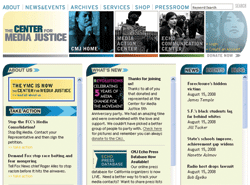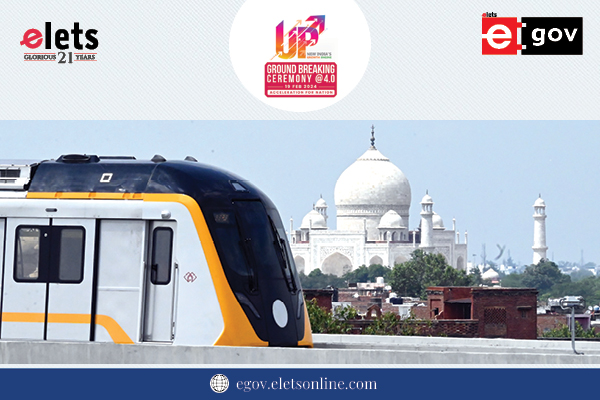|
From alternative media and public television to cable access, ethnic press, and low-power FM, marginalised communities are emanding e-Communications/media policies to seek protection against elite rule |
Introduction
Popular funk musician George Clinton said, “Whoever controls the news, determines our destiny.” Most of us agree that a fight to determine the destiny of this country is rooted, in part, in who owns the media and who makes the rules. The question for some of us is how do we surface the historical context of communications and shift the current power relations of the media system? The answer involves building a coordinated movement for media reform that becomes a bridge between policy change and structural transformation. I was born in New York into a childhood marked by the language of super predators and welfare moms, lies about a steadily growing crime rate, and a consistent invisibility about the relationship between the social conditions of my community and the policy decisions of this nation’s leaders. This distorted and biased media content told the public a story about the content of my character, a story that built public acceptance for a political war on crime and drugs that led to the incarceration and death of millions, including many I knew and loved.
Fight for civil rights
For many of us, media reform is more than a fight for our media, it is a fight for our lives. Today, we face a Bush-led war on the world and even more dangerous times. Our media system represents a crisis of democracy for the vast majority of the population. Our communication rights are one among the many civil rights being rolled back, but not without a fight. From state to state, communities refuse to give up their right to equal media access; fair, accurate, and balanced content; and the power to own and control media infrastructure. From alternative media and public television, to cable access, ethnic press, and low-power FM, marginalised communities are demanding telecommunications policies in our interests.
When we speak of media reform, the intentions of the ‘framers’ and constitutional interpretations offer incomplete answers to the questions: What is a free press and how is it guaranteed? We’ve heard that Jefferson and Madison understood the importance of an astute press in creating the foundation for a strong democracy and protection against elite rule. What remains both invisible and undeniable in the debate about U.S. media is the colonial context of its birth. As the ‘founding fathers’ were documenting their concept of a free press, they were also building a slaveholding capitalist economy and a white nationalist politic that would entrench media policies and practices for centuries to come. Our current media system reproduces and maintains the colonial power relationships of its beginnings. Understanding the role media plays in creating and perpetuating structural racism and class oppression is not a secondary issue. It’s central to building an effective and relevant movement for media reform that fundamentally transforms the U.S. system of communications.
Ensuring media justice
 By adopting a raced, classed and gendered lens to examine issues of media content, access and infrastructure, we can dispel three dangerous myths. The first myth is that the U.S. media used to be more democratic and has become less so over time. The fact is the U.S. media system was born of colonial conquest and imperial intrusion, calling the democratic foundations of this press into direct question. For people of color, women, queer people and young folks, there has never been a free press, and without racial, economic and gender justice, there never will be. The second myth is that communication rights are inherently individual civil rights guaranteed by citizenship. What of the millions of undocumented people forced by economic and political conditions to emigrate to this country? What of the millions of incarcerated men, women, and children whose citizenship rights are severed by confinement? What of the black, brown, female, queer and young people whose basic civil rights require ongoing movements to secure and even then are always in question. Where there is no real mechanism to guarantee civil rights, citizenship offers no protection or guarantee of communication rights. The third and final myth we must dismantle is that we can achieve a free press without also working to end racism, sexism and class oppression. Nothing could be further from the truth. Before the current trends of consolidation, reregulation in the corporate interest and corporate control, the media was simultaneously a tool for civic engagement and a threat to the life and liberty of marginalised communities. In a free-market society organised by class, race and gender, no press can be truly free unless the people who use it and are impacted by it are also free.
By adopting a raced, classed and gendered lens to examine issues of media content, access and infrastructure, we can dispel three dangerous myths. The first myth is that the U.S. media used to be more democratic and has become less so over time. The fact is the U.S. media system was born of colonial conquest and imperial intrusion, calling the democratic foundations of this press into direct question. For people of color, women, queer people and young folks, there has never been a free press, and without racial, economic and gender justice, there never will be. The second myth is that communication rights are inherently individual civil rights guaranteed by citizenship. What of the millions of undocumented people forced by economic and political conditions to emigrate to this country? What of the millions of incarcerated men, women, and children whose citizenship rights are severed by confinement? What of the black, brown, female, queer and young people whose basic civil rights require ongoing movements to secure and even then are always in question. Where there is no real mechanism to guarantee civil rights, citizenship offers no protection or guarantee of communication rights. The third and final myth we must dismantle is that we can achieve a free press without also working to end racism, sexism and class oppression. Nothing could be further from the truth. Before the current trends of consolidation, reregulation in the corporate interest and corporate control, the media was simultaneously a tool for civic engagement and a threat to the life and liberty of marginalised communities. In a free-market society organised by class, race and gender, no press can be truly free unless the people who use it and are impacted by it are also free.
If we want to bring about real change, the media reform movement must adopt a movement-building analysis, change model and vision that centres racial, economic and gender justice. Media Justice is a framework for media policy change that seeks to expose structural racism and class oppression in our media system, use local organising campaigns to root our victories, develop marginalised communities as media activists and leaders, and build an expansive movement for communication rights. We want accountability, alternatives and a media reform movement that spins on an axis of self determination and strategic alliance. As a member of the growing media justice movement, we at the Youth Media Council believe that there are 5 strategic steps we can and must take to build a strategic and effective movement for media justice:
(i) Connect media policy to racial justice. Social justice groups must recognise media policy as a sister to their central bread and butter issues, while media policy groups must take up the fight for racial and economic justice. We cannot win one without fighting for the other.
(ii) Use content battles, access fights and media accountability campaigns to engage new constituencies in the fight for progressive media policy. Marginalised communities are tired of corporations using stereotypes to make products sexy, using crime to sell news, using our bodies to build media infrastructure, and our money to get rich. We are key stakeholders in this fight. Our experiences with content, access and accountability must help to guide the analysis; our vision for broad social justice must help to determine the victories.
(iii) Organise and coordinate from the ground up. Alliance building between national media policy groups and local grassroots organising groups is a necessary component of our change model. Nothing roots change like a campaign. Legal remedies alone can be overturned. The courage of communities demanding what’s ours is the only way the momentous victories we have won can be sustained.
(iv) Use key political moments as strategic opportunities to advance our media policy agenda. Like many of you, we at the YMC are working to build infrastructure, base and leaders at the local level to challenge the Bush Administration’s imminent overhaul of the 1996 Telecommunications Act. In partnership with Media Alliance and others, we are using the upcoming broadcast license renewal process to challenge corporate control of our airwaves, increase accountability in local radio stations, confront structural racism in the licensing process, and lay the foundation for national opposition to Bush’s plan. The strategy of using timely policy debates to advance long-term goals is an important one that the Right has used very well. It’s our turn now. It’s our time.
(v) Marginalised communities care about media reform because our lives and our freedom are at stake. We care because from hip-hop to advertising, media corporations exploit the culture of youth and people of color for profit, while those same corporations use our families to create and assemble the technology that makes them rich. We care because our communities remain producers and consumers of a media system over which they have little to no control. But powerlessness is another dangerous myth we must challenge. Together, we have the combined strategy and skill to dismantle and rebuild this media system. Where the U.S. has used our media to export racism, sell war, and destructively declare itself a singular superpower, the problem of the U.S. media is a problem for the whole world. We can and must use media reform as a bridge to inch closer and closer to justice. Did I say that victory is imminent? I meant, it is everywhere. From the accountability campaign against Hot 97 in NY, to the Florida-based Immokalee workers’ fight for low power-fm, marginalized communities are here as stakeholders, as organisers and as visionaries. A truly free press is our right, and we’re damn sure gonna fight for it. 
NB: Youth Media Council has been renamed as ‘The Center for Media Justice’Citation: Malkia Cyril, ‘Justice By Any Name.’ Free Press and Media Reform Conference Opening Plenary Speech, May 13, 2005. http://www.youthmediacouncil.org/publications.html
Be a part of Elets Collaborative Initiatives. Join Us for Upcoming Events and explore business opportunities. Like us on Facebook , connect with us on LinkedIn and follow us on Twitter, Instagram.











